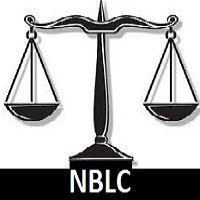Best Conveyancing Lawyers in Faisalabad
Share your needs with us, get contacted by law firms.
Free. Takes 2 min.
Free Guide to Hiring a Real Estate Lawyer
List of the best lawyers in Faisalabad, Pakistan
About Conveyancing Law in Faisalabad, Pakistan
Conveyancing in Faisalabad, Pakistan refers to the legal process of transferring ownership of immovable property, such as land, houses, or commercial plots, from one person to another. This process involves the drafting, verification, and execution of legal documents to ensure that the buyer receives a clear and unencumbered title to the property. Given the complex nature of property laws in Pakistan and the active real estate market in Faisalabad, engaging professionals for conveyancing is crucial to avoid disputes and secure your investment.
Why You May Need a Lawyer
Conveyancing is much more than a simple transaction, as it involves a variety of legal, financial, and regulatory requirements. You may need a lawyer in the following situations:
- Purchasing or selling property anywhere in Faisalabad
- Transferring property through gift or inheritance
- Verifying the authenticity of property documents and ensuring there are no legal encumbrances or unpaid dues
- Resolving disputes related to property title, boundaries, or co-ownership
- Registering a lease agreement or mortgage
- Getting approvals and NOCs from local authorities and regulatory bodies
- Protecting your rights during the property transfer process
- Complying with the latest stamp duty and registration charges as per local laws
- Handling property matters for overseas Pakistanis who may not be present to complete legal formalities themselves
Local Laws Overview
Laws governing conveyancing in Faisalabad are primarily rooted in both provincial statutes under Punjab laws and federal regulations. Key aspects include:
- Punjab Land Revenue Act, 1967 - governs land records, mutations, and property transfers
- Registration Act, 1908 - mandates registration of property transfer documents such as sale deeds, gift deeds, and lease agreements
- Stamp Act, 1899 - prescribes the appropriate stamp duty payable on property transfers
- Transfer of Property Act, 1882 - outlines the procedures and requirements for valid property transfer
- Municipal and local development authorities, such as Faisalabad Development Authority (FDA) and Faisalabad Municipal Corporation, have their own by-laws and approval processes for property transfer and development
- Revenue records (Fard, Intiqal) must be updated at the local Patwari office or Land Record Centers
- Verification of NOCs from relevant authorities is mandatory for certain properties, especially in housing societies
- Heirship and succession are governed under personal laws and rules relating to inheritance
Frequently Asked Questions
What is conveyancing and why is it important?
Conveyancing is the legal process of transferring property title from a seller to a buyer. It is important because it ensures the buyer gets clear ownership, all taxes and dues are paid, and the ownership is legally recognized.
How long does the conveyancing process take in Faisalabad?
Depending on the complexity of the transaction and the speed of document verification by relevant authorities, conveyancing generally takes between two to six weeks in Faisalabad.
Which documents are needed for property transfer?
Common documents include sale deed or gift deed, Computerized National Identity Cards (CNIC) of parties, allotment letter, previous title documents, latest Fard (ownership record), mutation certificate, NOC from the relevant authority, and evidence of payment of taxes and government dues.
Are there any taxes or charges payable?
Yes, buyers and sellers must pay stamp duty, registration fee, capital value tax, advance tax, and in some cases, society transfer fees or charges levied by local authorities.
What is a mutation and why is it important?
A mutation (Intiqal) is the process of updating land revenue records to reflect the new owner after a sale, gift, or inheritance. It is essential to establish official ownership in government records.
Can an overseas Pakistani complete conveyancing remotely?
Yes, overseas Pakistanis can appoint a trusted person through a legally executed power of attorney to complete the conveyancing process on their behalf.
What is the role of a Patwari in conveyancing?
A Patwari is a local revenue official responsible for maintaining land records and issuing the Fard (ownership certificate). Both buyer and seller typically interact with the Patwari during transfer of rural and agricultural land.
How can I verify the authenticity of property documents?
You can verify documents through the Punjab Land Records Authority (PLRA), the relevant local development authority, the office of the Patwari, and with the assistance of a qualified lawyer with expertise in property matters.
What are common risks in property transactions?
Risks include fake or forged documents, unclear title, undisclosed disputes or loans, pending dues or encumbrances, and absence of mandatory NOCs or building approvals.
Is it mandatory to register all property transactions?
Yes, according to law, all transfers of immovable property must be registered with the relevant sub-registrar to be legally effective and to protect the interests of both parties.
Additional Resources
Several organizations and authorities can assist with conveyancing in Faisalabad:
- Punjab Land Records Authority (PLRA) - for digital property records and Fard issuance
- Faisalabad Development Authority (FDA) - for approvals and NOCs within FDA managed areas
- District Registrar Office, Faisalabad - for document registration and legal formalities
- Punjab Bar Council - to find qualified property lawyers
- National Database and Registration Authority (NADRA) - for biometric verifications and identification
- Local Patwar Circle or Tehsil Land Record Centers
Next Steps
If you require legal assistance in conveyancing, here are the recommended steps:
- Gather all relevant property documents and evidence of identity
- Consult with a licensed property lawyer in Faisalabad to review your documents and advise on the process
- Visit the relevant land record office or development authority with your lawyer to verify property ownership and status
- Ensure all dues, taxes, and charges are paid before executing transfer documents
- Register the transfer at the appropriate registrar office or land record center
- Keep copies of all receipts, registered documents, and certificates for your records
- For overseas transactions, arrange a proper power of attorney through the Pakistan embassy or consulate if you cannot be physically present
- If you face any complexity or dispute, immediately seek advice from a lawyer specializing in property law in Faisalabad
By following these steps and consulting with professionals, you can minimize risks and ensure a smooth, legally secure property transfer in Faisalabad.
Lawzana helps you find the best lawyers and law firms in Faisalabad through a curated and pre-screened list of qualified legal professionals. Our platform offers rankings and detailed profiles of attorneys and law firms, allowing you to compare based on practice areas, including Conveyancing, experience, and client feedback.
Each profile includes a description of the firm's areas of practice, client reviews, team members and partners, year of establishment, spoken languages, office locations, contact information, social media presence, and any published articles or resources. Most firms on our platform speak English and are experienced in both local and international legal matters.
Get a quote from top-rated law firms in Faisalabad, Pakistan — quickly, securely, and without unnecessary hassle.
Disclaimer:
The information provided on this page is for general informational purposes only and does not constitute legal advice. While we strive to ensure the accuracy and relevance of the content, legal information may change over time, and interpretations of the law can vary. You should always consult with a qualified legal professional for advice specific to your situation.
We disclaim all liability for actions taken or not taken based on the content of this page. If you believe any information is incorrect or outdated, please contact us, and we will review and update it where appropriate.














